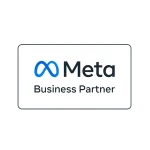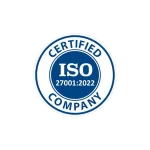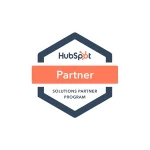Last Updated on 1 year by Gülenber Han
In today’s competitive business landscape, demand generation campaigns play a crucial role in driving growth and maximizing the lead pipeline. Businesses that effectively implement demand generation strategies are able to attract and nurture potential customers, ultimately generating qualified leads and increasing revenue.
From strategizing content to leveraging social media and influencer collaboration, optimizing for search engines, elevating brand authority through events and webinars, embracing marketing automation, executing targeted paid advertising campaigns, and incorporating performance marketing, we will cover a range of topics that will enable businesses to enhance their demand generation efforts. With these expert tips, businesses can create impactful demand generation campaigns that drive growth and success.
What is Demand Generation?
Demand generation is a crucial strategy for businesses looking to create brand awareness and attract potential customers. It involves a comprehensive approach to marketing that focuses on generating interest and demand for products or services. By implementing effective demand generation strategies, businesses can drive customer engagement, nurture leads, and ultimately generate qualified leads that have a higher likelihood of converting into customers.
The main objective of demand generation is to create a demand for a product or service, even in markets where there may not be an existing demand. This proactive approach aims to capture the attention of potential customers and educate them about the benefits and value of the offering, ultimately influencing their purchasing decisions.
Importantly, demand generation differs from lead generation. While lead generation focuses on identifying and collecting contact information of potential customers, demand generation seeks to create demand and build a strong pipeline of potential leads. By prioritizing demand generation, businesses can actively stimulate interest, build brand awareness, and drive customer engagement.
Through demand generation activities such as content marketing, social media advertising, and targeted campaigns, businesses can cultivate relationships with potential customers at various stages of the buyer’s journey. This allows them to position themselves as a trusted authority in their industry and stay top-of-mind when potential customers are ready to make a purchase.
Delineating Demand Generation and Lead Generation
In the world of marketing, two key terms often come into play: demand generation and lead generation. While they may sound similar, they have distinct meanings and objectives. Understanding the differences between demand generation and lead generation is crucial for businesses to implement effective marketing strategies and drive growth.
Definition of Demand Generation
Demand generation refers to the comprehensive marketing activities aimed at increasing brand awareness and generating interest among potential customers. It involves creating demand for a product or service by building relationships, nurturing leads, and engaging with the target audience. The primary goal of demand generation is to generate demand and fill the top of the sales funnel, attracting potential customers who are not yet actively seeking a solution.
Definition of Lead Generation
Lead generation, on the other hand, focuses on identifying and capturing potential customers who have shown interest in a product or service. It involves collecting contact information from individuals who have expressed intent, allowing businesses to follow up and nurture these leads through the sales process. The primary goal of lead generation is to generate qualified leads, which can be passed on to the sales team for further engagement and conversion.
Differences Between Demand Generation and Lead Generation
While both demand generation and lead generation aim to drive business growth, they differ in their primary objectives and stages within the sales funnel. By understanding the differences between demand generation and lead generation, businesses can develop a harmonious marketing strategy that leverages both approaches. Demand generation activities can create brand awareness and attract potential customers, while lead generation focuses on capturing interested individuals and converting them into paying customers.
Strategizing Content for Successful Demand Generation Campaigns

In order to drive demand and generate qualified leads, a well-crafted content strategy is essential for demand generation campaigns. By aligning your content with the buyer’s journey and effectively engaging your target audience, you can create valuable and compelling content that attracts and nurtures potential customers.
When strategizing your content for demand generation campaigns, it’s important to consider the different stages of the buyer’s journey. This journey typically consists of three stages: awareness, consideration, and decision. Each stage requires tailored content that addresses the specific needs and challenges of your target audience.
During the awareness stage, your content should focus on creating brand awareness and capturing the attention of potential customers. Provide informative and educational content that addresses their pain points and offers valuable insights. This can be achieved through blog posts, social media content, and informative videos.
As potential customers move into the consideration stage, they are actively researching and comparing different solutions to their problem. At this stage, your content should demonstrate your expertise and establish trust. Case studies, white papers, and product demonstrations are effective in showcasing your capabilities and differentiating your offering from competitors.
In addition to aligning your content with the buyer’s journey, it’s important to diversify your content formats. This includes written content, visual content, interactive content, and audio content. By catering to different preferences and learning styles, you can engage a wider audience and maximize the impact of your demand generation campaigns.
The Impact of Social Media and Influencer Collaboration
In today’s digital landscape, social media has become an integral part of our daily lives. Businesses can no longer ignore the power of social media in reaching and engaging with their target audience. When combined with influencer collaboration, social media becomes an even more formidable tool for demand generation.
Social media platforms such as Facebook, Instagram, X (Twitter), and LinkedIn allow businesses to connect with their audience on a personal level. By sharing relevant and engaging content, businesses can build brand awareness, increase their online presence, and foster meaningful relationships with their customers.
Influencer collaboration takes the impact of social media to the next level. By partnering with influencers who have a substantial following and influence in their respective niches, businesses can tap into their audiences and expand their reach exponentially. Influencers have the ability to affect consumer behavior and drive demand for products or services through their recommendations and endorsements.
Through influencer marketing, businesses can leverage the trust and credibility that influencers have already established with their followers. By collaborating with influencers who align with their brand values and target audience, businesses can amplify their message and generate demand in a more authentic and organic way.
By harnessing the power of social media and influencer collaboration, businesses can make a significant impact on their demand generation campaigns. They can reach a wider audience, increase brand visibility, and ultimately drive more qualified leads. Social media provides a platform for businesses to connect, engage, and interact with their target audience in a more direct and personal way.
However, it’s important for businesses to approach social media and influencer collaboration strategically. A well-thought-out plan that aligns with the overall demand generation strategy and target audience is crucial. By understanding the preferences and behaviors of their target audience, businesses can create relevant and impactful content that resonates with them on social media platforms.
Optimizing for Search Engines to Boost Campaign Visibility

In today’s digital landscape, search engine optimization (SEO) plays a vital role in the success of demand generation campaigns. By implementing effective SEO strategies, businesses can boost the visibility of their campaigns, attract qualified leads, and maximize their demand generation efforts. To optimize your campaign for search engines and increase its visibility, consider the following tips:
Create High-Quality, Keyword-Rich Content
Developing high-quality, keyword-rich content is crucial for SEO success. Conduct keyword research to identify relevant terms and phrases that your target audience is searching for. Incorporate these keywords naturally into your website copy, blog posts, and other content to improve your search rankings.
Optimize Metadata and On-Page Elements
Optimize your website’s metadata, including titles, descriptions, and headers, by including relevant keywords. Pay attention to on-page elements such as alt tags for images and meta tags for videos to enhance the visibility of your campaign in search results.
Improve Website Loading Speed
A slow-loading website can negatively impact your search rankings and user experience. Enhance your website’s loading speed by compressing images, minimizing code, and leveraging caching techniques. A faster website will not only rank higher in search results but also provide a better user experience, increasing the chances of conversion.
Optimize for Mobile Devices
Mobile optimization is essential in today’s mobile-first world. Ensure that your website is fully responsive and compatible with various devices and screen sizes. Mobile-friendly websites tend to rank higher in mobile search results, boosting the visibility and accessibility of your campaign.
Build High-Quality Backlinks
Backlinks from reputable and authoritative websites can significantly contribute to your campaign’s visibility and credibility. Implement a link building strategy to earn high-quality backlinks pointing to your website. This can be achieved through guest blogging, influencer collaborations, and engaging with industry publications.
By following these SEO best practices, businesses can optimize their demand generation campaigns for search engines, improve campaign visibility, and attract a steady stream of qualified leads. Implementing effective SEO techniques is crucial in today’s highly competitive digital landscape, and it can make a significant impact on the success of your demand generation efforts.
Elevating Brand Authority through Events and Webinars
In the realm of demand generation, establishing brand authority is crucial for businesses to drive growth and stand out from the competition. One effective approach to achieve this is by leveraging events and webinars. These platforms provide businesses with opportunities to showcase their expertise, engage with their target audience, and generate demand for their products or services.
By hosting or participating in events, businesses can position themselves as industry leaders and gain credibility among their target audience. Events allow companies to share their knowledge, insights, and thought leadership on relevant topics, establishing themselves as authorities in their respective fields. This, in turn, fosters trust and builds brand loyalty, ultimately driving demand for their offerings.
Webinars, on the other hand, offer a digital platform for businesses to connect with their audience in a more interactive and educational way. By hosting webinars that address specific pain points or provide valuable information, companies can further establish their authority and expertise. Webinars allow participants to directly engage with experts, ask questions, and receive targeted insights, all of which contribute to building trust and credibility.
Both events and webinars serve as channels for businesses to not only showcase their brand authority but also engage with potential customers. Through these platforms, companies can connect with their target audience on a personal level, understand their needs, and provide tailored solutions. The interactive nature of events and webinars creates a unique opportunity for businesses to establish meaningful connections and nurture relationships with their prospects.
Embracing Marketing Automation for Scalable Outreach
In today’s fast-paced digital landscape, marketing automation has become a crucial tool for businesses looking to drive demand generation at scale. By leveraging marketing automation, companies can streamline their outreach efforts, nurture leads effectively, and optimize their demand generation strategies for maximum results.
Marketing automation tools provide businesses with the ability to automate repetitive tasks, such as email marketing, social media posting, and lead nurturing. By automating these processes, businesses can save valuable time and resources, allowing their marketing teams to focus on creating targeted and personalized campaigns that resonate with their audience.
One of the major benefits of marketing automation in demand generation campaigns is its ability to nurture leads throughout the buyer’s journey. With marketing automation, businesses can develop personalized lead nurturing workflows that deliver the right content, at the right time, to the right individuals. This targeted approach not only improves the efficiency of lead nurturing efforts but also increases the chances of converting leads into customers.
Furthermore, marketing automation enables businesses to scale their demand generation efforts by reaching a larger audience in a more efficient manner. By automating outreach processes, businesses can execute personalized and consistent campaigns across multiple channels, ensuring that their message reaches potential customers at every touchpoint. This scalability allows businesses to generate a higher volume of qualified leads and drive revenue growth.
Another advantage of marketing automation in demand generation campaigns is the ability to track and measure campaign performance. Marketing automation tools provide robust analytics and reporting capabilities, allowing businesses to gain valuable insights into the effectiveness of their campaigns. By analyzing key metrics such as open rates, click-through rates, and conversions, businesses can continuously optimize their demand generation strategies to achieve better results.
Executing Targeted Paid Advertising Campaigns
Targeted paid advertising plays a crucial role in successful demand generation campaigns. By implementing effective paid advertising strategies, businesses can reach their target audience, increase brand awareness, and generate demand. With the right approach, businesses can amplify their reach and convert leads into customers.
One of the key advantages of targeted paid advertising is the ability to narrow down the audience based on specific demographics, interests, and behaviors. This level of precision ensures that your ads are shown to the right people, increasing the chances of capturing their attention and driving engagement. By focusing on the right audience, businesses can maximize their advertising budgets and optimize their conversion rates.
In order to execute targeted paid advertising campaigns successfully, businesses should start by defining clear campaign objectives. Whether it’s driving website traffic, increasing sign-ups, or boosting online sales, having well-defined goals will help guide your advertising strategy. From there, businesses can choose the most suitable advertising platforms, such as Google Ads or social media advertising, to reach their target audience effectively.











